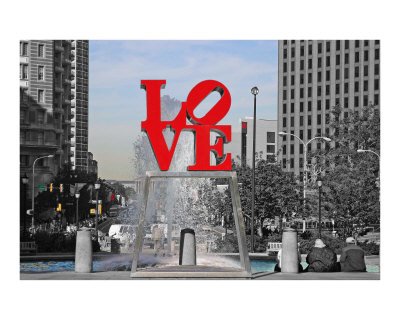
It’s possible to be in a committed relationship, while still remaining independent.
Independence means you know who you are, what you wish to do in life, and why. You don’t expect or demand the person you’re in a relationship with to fulfill these needs for you.
Before you met this person, you hopefully knew what you liked and loved to do. That doesn’t change just because you fall in love, or start a relationship.
Rationally speaking, you fall in love with someone because of who he or she actually is. You don’t—at least rationally speaking—love only one key thing about a person (looks or income, for example), and then seek to make them into the person you otherwise want him or her to be.
Relationships are about celebrating and enjoying each other, as they are. It’s not about shaping or molding someone into something he or she doesn’t necessarily want to be.
Resentment over this issue, piled up over time, is what leads to the break-up of many relationships or marriages, in my experience.
This is why independence is crucial. A psychologically independent person already knows how to spend his day and time. He enjoys these activities without a partner, but of course would prefer a partner. But the partner is someone who ends up adding to his life (and vice-versa), not creating value in the first place.
It may sound unromantic, but the best kind of relationships are the ones you know you could live without, if you had to do so. You might seek to move mountains, or even risk your life (if warranted) for the sake of the man or woman you love. Your love could mean that much to you, and romanticism is of course a wonderful thing. But at the same time, you know what you value and what you wish to do in life with or without the partner, in the unexpected event that circumstances required it.
When you initially fall in love with someone, you fall in love with who you think the person is. Sometimes that initial impression proves true, and sometimes it doesn’t. Sometimes the person changes over time, as well, or perhaps you change over time yourself. Life and people are not static, and sometimes what people value shifts or changes over time. Sometimes a romantic connection can survive these changes, and sometimes it cannot. As I’ve written elsewhere, sometimes a love is right for its time, but not for all time.
Independence includes the belief that you can and will survive even without a particular love in your life. You might not wish to do so—but you can. You don’t depend on the other person to ‘make you happy.’ Instead, you already know how to make yourself happy. Being in a relationship with this special person adds to the celebration, but does not by itself create it.
Contrary to popular ‘wisdom,’ there is no conflict between self-interest and love. When you love someone rationally, you love the person for being who he or she wants to be. ‘That’s how you are, and I love you for it.’ There’s no shaping of another, no hidden agendas. Shaping, manipulation and hidden agendas do not arise from self-interest. They actually arise from a lack of self.
Relationships are neither ‘selfish’ (in the conventional sense of sacrificing another) nor selfless. Relationships that can last—and that are worth lasting—are ones in which each gains and benefits tremendously by the other being the person he or she really is. Love comes from two autonomous individuals, not from either side sacrificing one’s core self for the other. Romantic love is added value for each, not the psychological equivalent of cannibalism.
The same principle applies to less intense relationships, such as friendships or important business/intellectual associations outside of romance. The principle applies across the board: Value in human relationships cannot sustain itself without healthy, strong independence within each of the parties involved.
When you don’t pay proper attention to your own independence and autonomy, you in effect hold yourself hostage to the actions of others. The person you love transforms into the person you ‘must’ have act, think or feel in a certain way—whether it suits him or not. You end up trying to sacrifice the one you love for the lack of self-esteem and autonomy within yourself.
The biggest error in love is to expect love to bring you happiness, rather than experience love as a celebration of happiness. Once you grasp the difference, you will finally grasp what love really means.
Be sure to “friend” Dr. Hurd on Facebook. Search under “Michael Hurd” (Rehoboth Beach DE). Get up-to-the-minute postings, recommended articles and links, and engage in back-and-forth discussion with Dr. Hurd on topics of interest.
